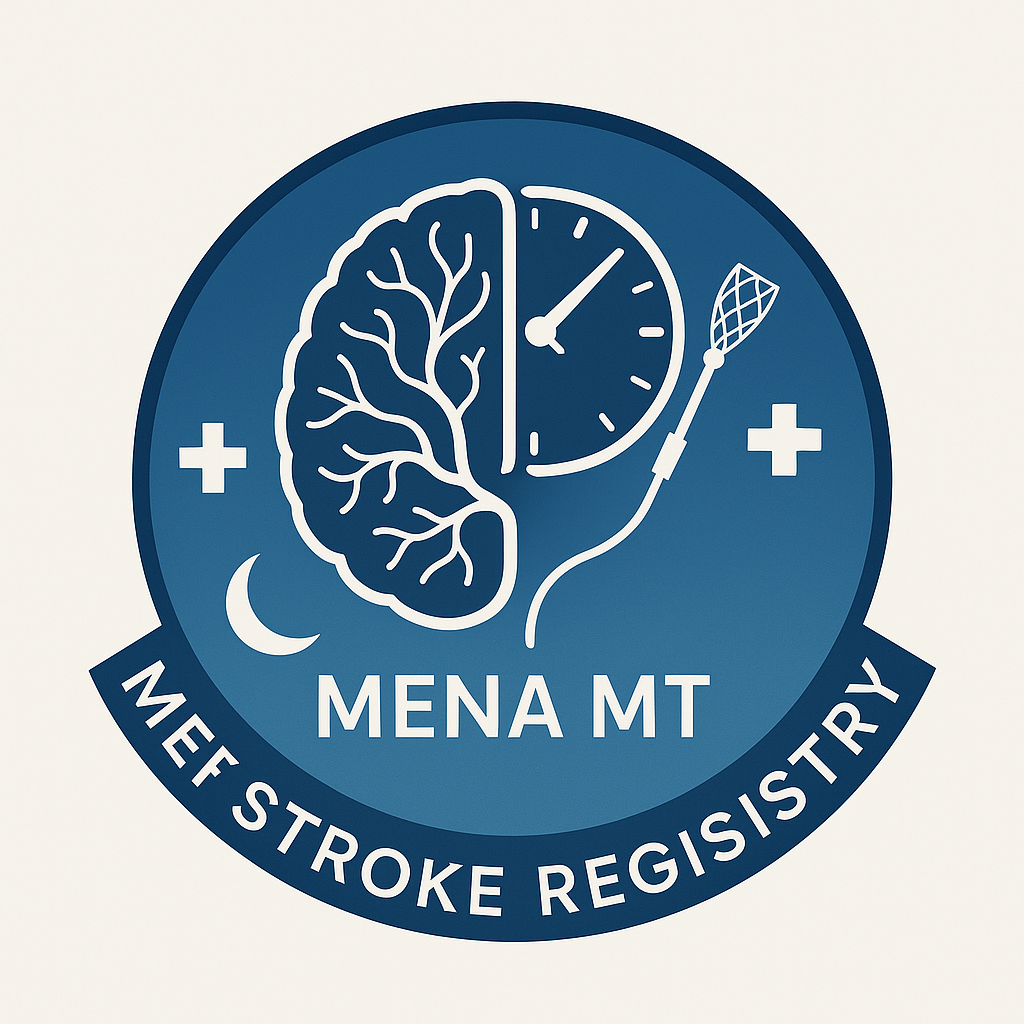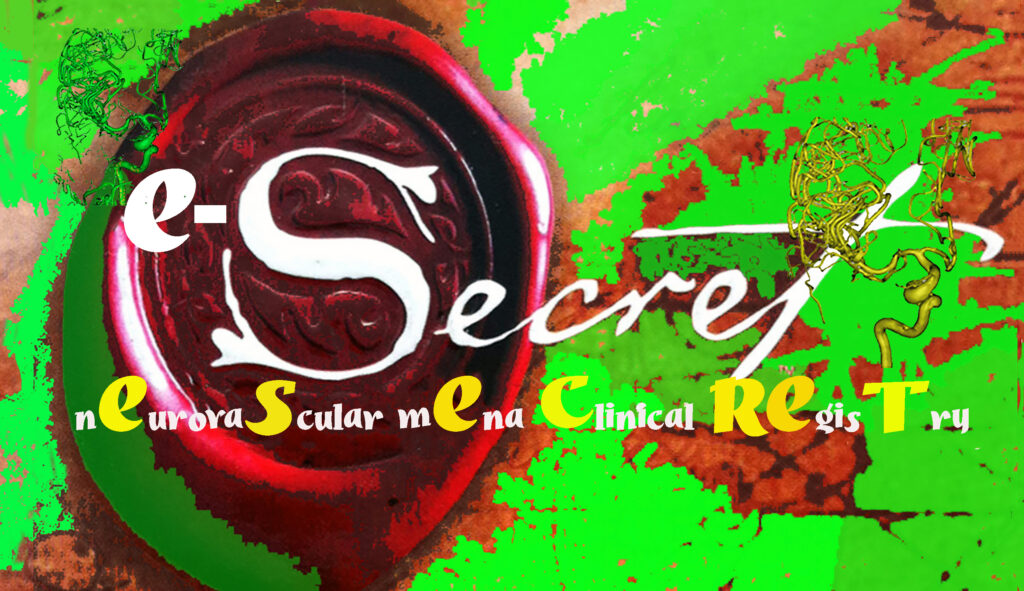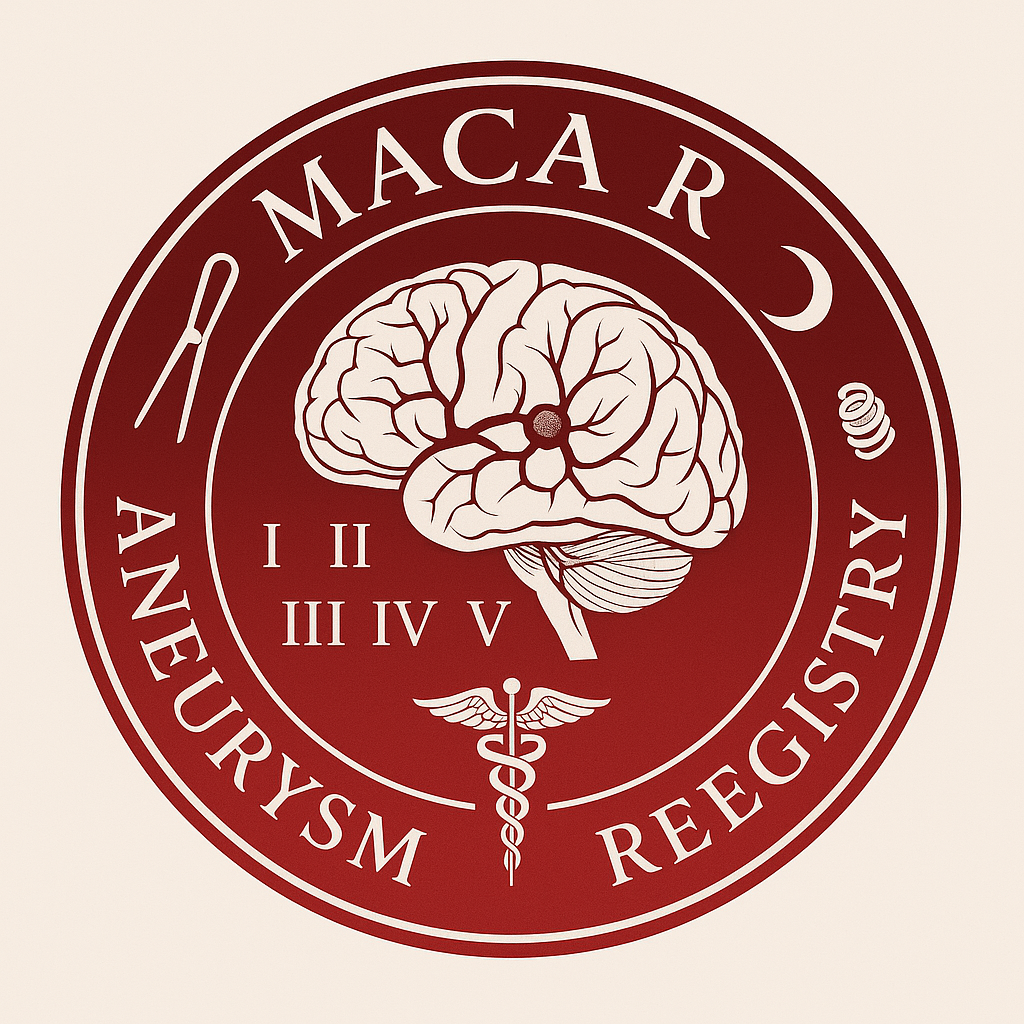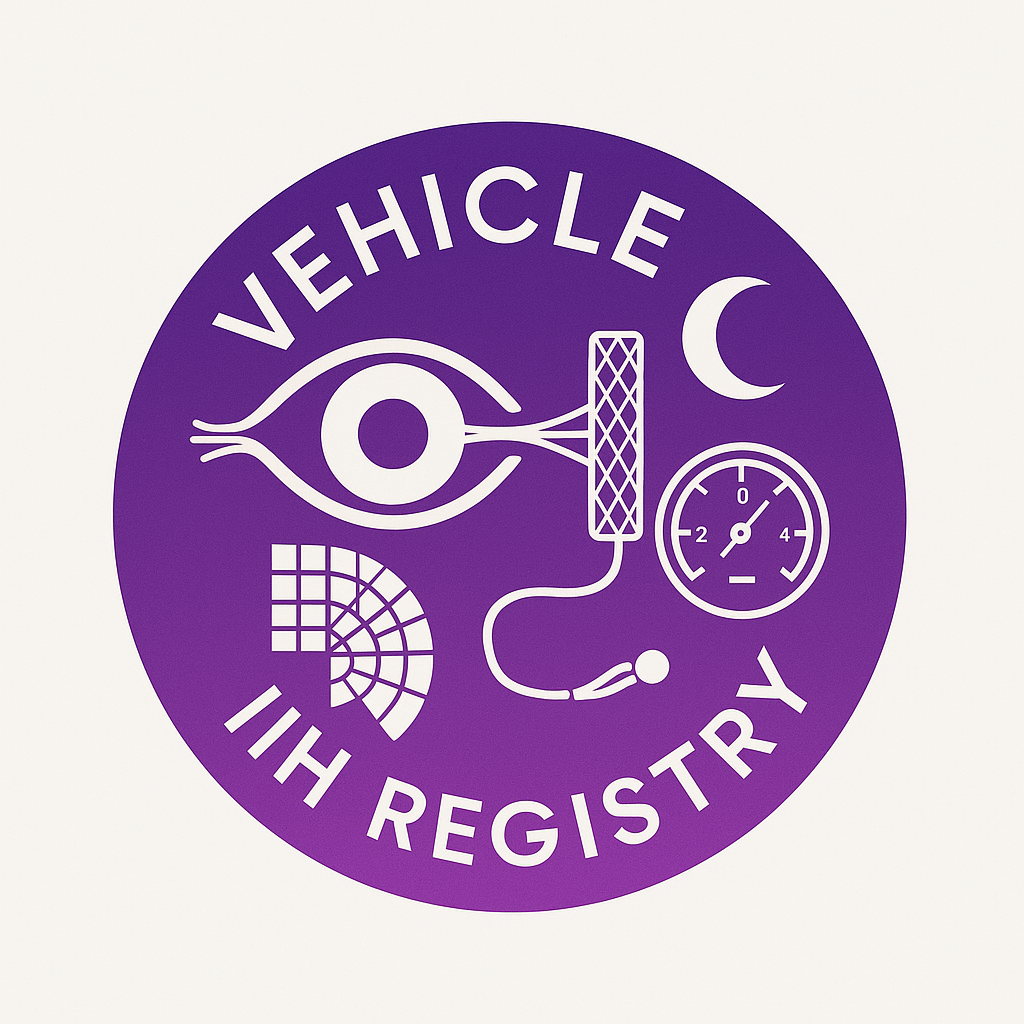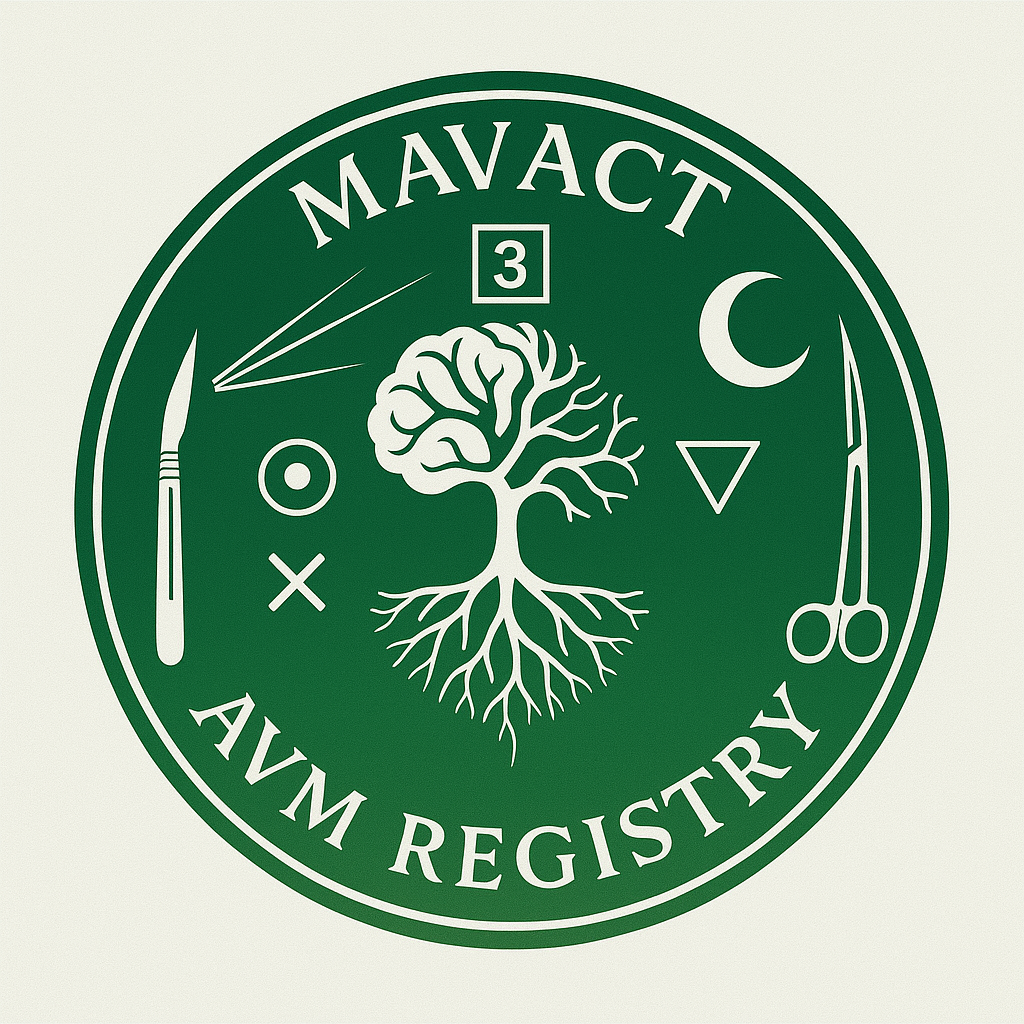MEMENTO: MEchanical thrombectomy Network for MENA TOgether
The MEMENTO registry is a comprehensive, collaborative platform designed to advance
our understanding of mechanical thrombectomy treatment for acute ischemic stroke across the
Middle East & North Africa (MENA) region.
Mechanical thrombectomy is a minimally invasive procedure used to remove blood clots from
occluded cerebral vessels, providing a life-saving intervention for patients with acute ischemic stroke.
The MEMENTO registry serves as a centralized database where clinicians and researchers can
securely collect and analyze procedural details, patient outcomes, and treatment trends.
Our primary goal is to build a robust dataset that captures:
- Patient demographics and clinical presentations
- Procedural techniques and device use
- Peri-procedural and long-term outcomes
- Safety metrics and complication rates
By aggregating and benchmarking this real-world data, MEMENTO aims to:
- Enhance evidence-based decision-making in stroke care
- Drive regional quality-improvement initiatives
- Facilitate collaborative research across multiple centers
- Develop tailored clinical guidelines for the MENA population
We invite all participating stroke centers and neurointerventional teams in the MENA region to
contribute data, share best practices, and engage in this collective effort to improve patient
outcomes and advance the science of mechanical thrombectomy.
The SECRET nEurovaScular mEna Clinical REgisTry
The SECRET nEurovaScular mEna Clinical REgisTry for stroke quality is a comprehensive and
confidential database that collects and analyzes data related to stroke care and quality measures.
It captures standardized information from healthcare facilities and providers involved in stroke
treatment and management.
The primary objective of the SECRET registry is to enhance understanding of stroke outcomes,
evaluate the effectiveness of interventions, and identify areas for improvement. By gathering
data on patient demographics, risk factors, treatment protocols, and follow-up outcomes, the registry
enables large-scale assessment of stroke care quality.
To protect patient privacy, the SECRET registry implements strict data security measures:
- All personal information is de-identified and encrypted.
- Data access is restricted to authorized healthcare professionals and researchers.
- Compliance with all relevant privacy regulations is enforced.
Through analysis of registry data, SECRET aims to identify trends, best practices, and gaps in
stroke care—ultimately driving improved patient outcomes, higher quality of care, and the
development of evidence-based stroke management guidelines.
MACAR (Mena Aneurysm Cerebral Aneurysm Registry)
The Mena Cerebral Aneurysm Registry (MACAR) is a comprehensive database of information
about cerebral aneurysms in the MENA region. The registry collects data on the epidemiology,
natural history, and treatment of cerebral aneurysms, with the aim of improving the understanding
and management of this condition.
MACAR is a collaborative effort between the Mena Stroke Society, the World Federation of Neurology,
and the Global Neurosurgery Initiative. The registry is open to all neurosurgeons and neurologists
in the MENA region, and data can be submitted online or through a mobile app.
The data collected by MACAR will be used to:
- Estimate the incidence and prevalence of cerebral aneurysms in the MENA region
- Identify risk factors for cerebral aneurysms
- Study the natural history of cerebral aneurysms
- Evaluate the effectiveness of different treatments
- Improve the quality of care for patients with cerebral aneurysms
MACAR is an important resource for researchers, clinicians, and policymakers working to improve
the understanding and management of cerebral aneurysms in the MENA region.
VEHICLE Registry – Venous stEnt for idiopathic intraCranial hypertEnsion
Idiopathic Intracranial Hypertension (IIH) is a condition that affects mostly young individuals, characterized by
severe headaches and vision loss. Medical and surgical management of IIH can be challenging, and many patients
remain refractory to standard therapies.
Emerging evidence suggests that severe stenosis of the cerebral venous sinuses may contribute to IIH in a subset
of patients. Venous sinus stenting has shown promise in small case series, with reports of significant
symptomatic improvement.
Our project aims to evaluate:
- The safety of venous sinus stenting in patients with severe, treatment-refractory IIH
- The long-term efficacy of this intervention in reducing intracranial pressure and improving clinical outcomes
By systematically collecting and analyzing data on procedural details, complications, and follow-up outcomes,
the VEHICLE registry seeks to establish evidence-based guidance for the management of IIH with venous sinus stenting.
MAVACT – MENA Arteriovenous malformation Vascular Anomalies and Care Treatment
MAVACT is a secure, multicenter registry designed to improve the diagnosis, management, and outcomes of intracranial and extracranial arteriovenous malformations (AVMs) and related vascular anomalies across the Middle East and North Africa.
Key Objectives
- Describe the epidemiology and natural history of AVMs in the MENA region
- Compare safety and efficacy of microsurgery, endovascular embolization, radiosurgery, and combined treatments
- Track peri‐procedural and long‐term outcomes (rebleeding, neurological function, quality of life)
- Inform region-specific care pathways and consensus guidelines
Core Features
- Prospective data capture via REDCap (web/mobile) with standardized case report forms
- Detailed fields for demographics, clinical presentation, angioarchitecture, treatments, and follow‐up
- Rigorous de-identification and encryption to safeguard patient privacy
Open to neurosurgeons, interventional neuroradiologists, radiation oncologists, and neurologists across academic and community centers, MAVACT is led by the MENA Stroke Society in partnership with the World Federation of Neurovascular Societies and the Global Vascular Anomalies Initiative.

